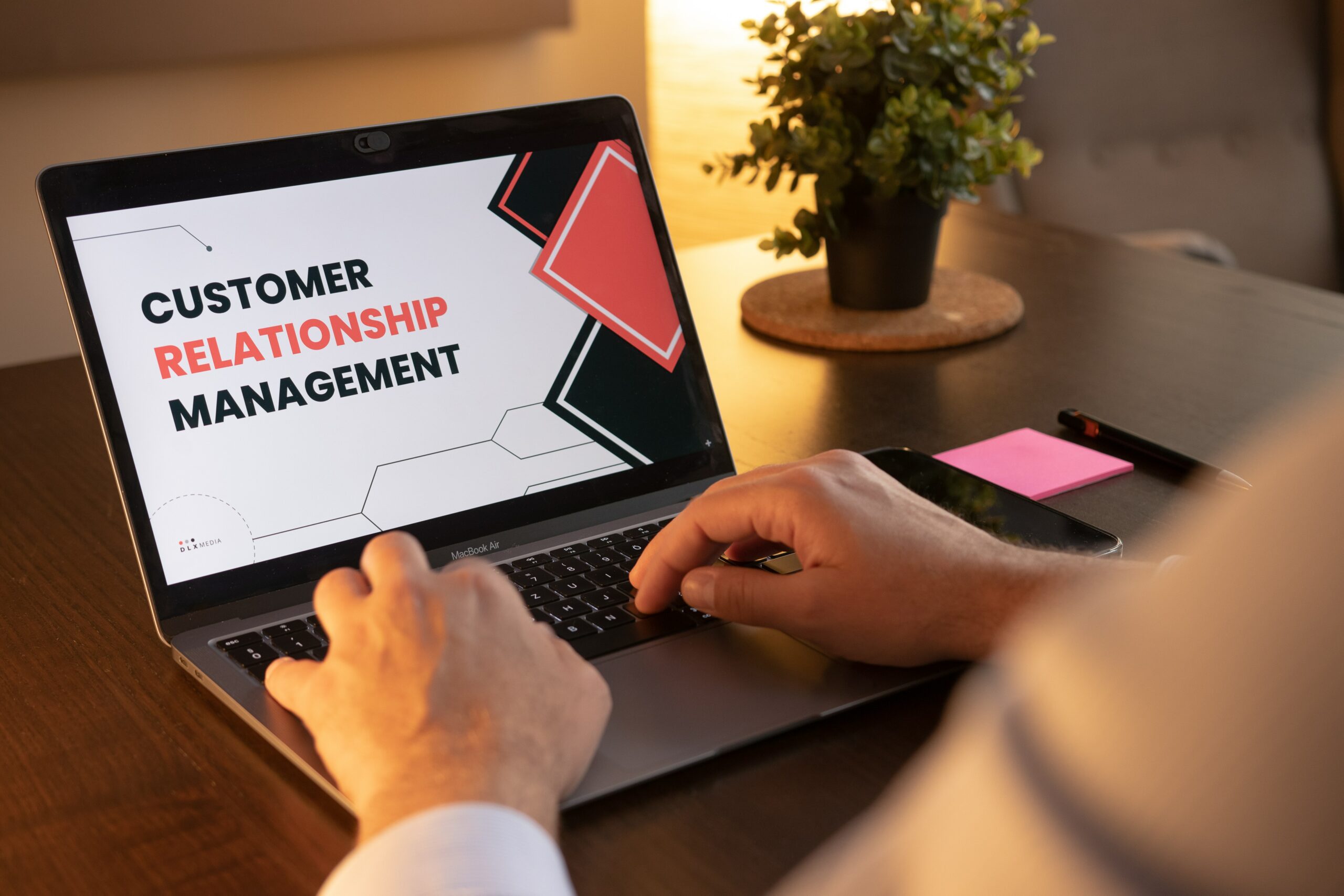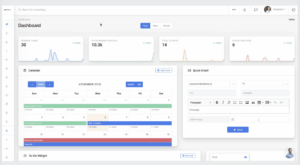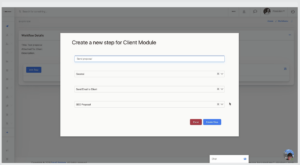
Share The Love:
Table of Contents
What is CRM?
CRM stands for Customer Relationship Management. It’s a system that businesses use to manage their interactions with current and potential customers. By collecting and storing data about customers, businesses can develop more efficient marketing, sales, and customer service strategies. CRM systems often include features such as contact lists, calendars, task managers, and automated email and SMS marketing tools. In recent years, the popularity of cloud-based CRM systems has grown exponentially, as they offer businesses a more cost-effective and flexible alternative to traditional on-premise CRM software.
Why Use CRM?
Any business that wants to be successful needs to have a system in place for managing its customer relationships. This is where customer relationship management (CRM) comes in. CRM is a tool that helps businesses keep track of their customers, their interactions, and their purchase history. It can also be used to automate tasks such as marketing and sales follow-up. In short, CRM is an essential tool for any business that wants to grow its customer base and improve its bottom line. There are many different CRM software programs available on the market, so it is important to choose one that will fit the specific needs of your business. By taking the time to implement a CRM system, you can take your business to the next level.
How Does CRM Work?

CRM, or customer relationship management, is a system that businesses use to manage their interactions with customers and potential customers. The goal of CRM is to build stronger relationships with customers, which can lead to repeat business and higher levels of customer satisfaction.
CRM systems typically include features such as contact management, social media integration, and reporting and analytics. Contact management allows businesses to keep track of all their customer interactions in one place. Social media integration enables businesses to listen to what customers are saying about them on social media and respond quickly to any concerns. Reporting and analytics give businesses insights into their customer base, so they can identify trends and areas for improvement.
By using a CRM system, businesses can get a better understanding of their customers and build more meaningful relationships with them. In turn, this can lead to more loyal customers and increased sales.
What Are the Benefits of CRM?

CRM, or customer relationship management, is a system for managing customer data. CRM software can help businesses track customer interactions, identify sales opportunities, and improve customer service. CRM systems can also help businesses manage their marketing efforts and target their advertising. The benefits of CRM software include the ability to:
- Increase sales: CRM systems can help businesses identify sales opportunities and provide the tools needed to close more deals.
- Improve customer service: CRM systems can help businesses track customer interactions and resolve issues more efficiently.
- Increase efficiency: CRM systems can automate tasks such as lead generation and follow-up, freeing up time for other activities.
- Save money: CRM systems can help businesses avoid the cost of missed sales opportunities and reduce the need for advertising.
Common Problems with Poor CRM
All businesses want to nurture their customer relationships, but poor CRM can get in the way. Customer relationship management (CRM) refers to the processes and technologies that businesses use to manage their interactions with customers. When used effectively, CRM can help businesses build strong relationships with their customers and improve their bottom line. However, when CRM is not used properly, it can lead to a number of problems, including the following:
- Poor data quality: One of the most common problems with poor CRM is inaccurate or out-of-date data. This can happen when data is entered manually into a CRM system, or when it’s imported from another system without being cleansed first. As a result, businesses may end up with duplicated or incomplete data, which can make it difficult to get a clear picture of their customers.
- Lack of user adoption: Another common problem with poor CRM is lack of user adoption. This can happen when CRM systems are not designed with users in mind, or when they’re not properly rolled out and supported. As a result, many employees may never use the system, or may only use it for basic tasks.
- Siloed data: Another issue that can arise from poor CRM is siloed data. This happens when different departments within a company store their data in separate systems, making it difficult to get a complete picture of the customer. As a result, businesses may miss out on opportunities to cross-sell or upsell products and services.
- Inflexible reporting: Finally, another problem that can arise from poor CRM is inflexible reporting. This happens when businesses are unable to generate the reports they need to make informed decisions about their customer relationships. As a result, they may miss out on important insights that could help them improve their business.
How Do I Choose the Right CRM for My Business?
Customer relationship management (CRM) software helps businesses manage customer data, automate sales and marketing tasks, and boost customer satisfaction. With so many CRMs on the market, choosing the right one for your business can be a daunting task. Here are a few things to keep in mind as you evaluate your options:
First, consider your business’s specific needs. What features are most important to you? Do you need a CRM that integrates with your existing software? Are you looking for a CRM with a robust reporting function? Once you’ve identified your must-haves, you can narrow down your options.
Second, think about ease of use. A CRM is only helpful if your team actually uses it. Look for a CRM with a user-friendly interface that’s easy to learn and navigate.
Finally, don’t forget to consider price. Some CRMs are more expensive than others, but remember that you get what you pay for. A more expensive CRM may offer features and capabilities that are well worth the investment.
By keeping these factors in mind, you can be confident that you’ll choose the right CRM for your business.
Tips for Getting Started with CRM
Customer Relationship Management (CRM) software can be a powerful tool for businesses, allowing them to track customer interactions, record sales data, and automate marketing tasks. However, CRM can also be complex and overwhelming, particularly for small businesses just getting started. If you’re thinking of implementing CRM in your business, here are a few tips to get you started:
- Define your goals. What do you hope to achieve by using CRM? By clearly defining your objectives, you’ll be able to choose the features and functionality that are most relevant to your business.
- Do your research. Not all CRM systems are created equal. There are a variety of options available on the market, so it’s important to do your homework and choose the one that best meets your needs.
- Start small. It’s tempting to try and implement all of the bells and whistles from the start, but doing so can quickly become overwhelming. Start with a basic implementation and build from there as you become more comfortable with the system.
- Train your team. CRM is only effective if it’s being used properly, so it’s important to provide employees with adequate training on how to use the system. By following these tips, you’ll be on your way to successfully implementing CRM in your business.
How CRM Can Help You Grow Your Small Business
As a small business owner, you wear many hats. You’re the CEO, the sales team, the marketing department, and often the janitorial staff, all rolled into one. It’s a lot to handle, and it’s easy to let things fall through the cracks. That’s where customer relationship management (CRM) comes in.
CRM is a system that helps you manage your interactions with current and potential customers. It can automate repetitive tasks like email marketing and follow-ups, so you can focus on the parts of your business that can’t be automated. And it gives you a 360-degree view of your customers, so you can see what they’ve bought from you in the past, what they’re interested in now, and how likely they are to buy from you in the future.
In short, CRM can help you grow your small business by giving you more time to focus on revenue-generating activities and giving you better insights into your customers’ needs and wants. If you’re not using CRM already, now is the time to start. Your small business will thank you for it.
Closing Points
CRM systems help businesses keep track of their customer relationships. By keeping track of customer interactions, businesses can better understand their needs and desires. Additionally, CRM systems can help businesses improve their marketing and sales efforts by providing them with valuable insights into customer behavior. In short, CRM systems offer a wide range of benefits for businesses that are looking to improve their customer relations. Thanks for reading! I hope this blog has helped you better understand the benefits of CRM systems. If you have any questions or comments, please feel free to leave them below. Thanks again for reading!
Tags
Share This



